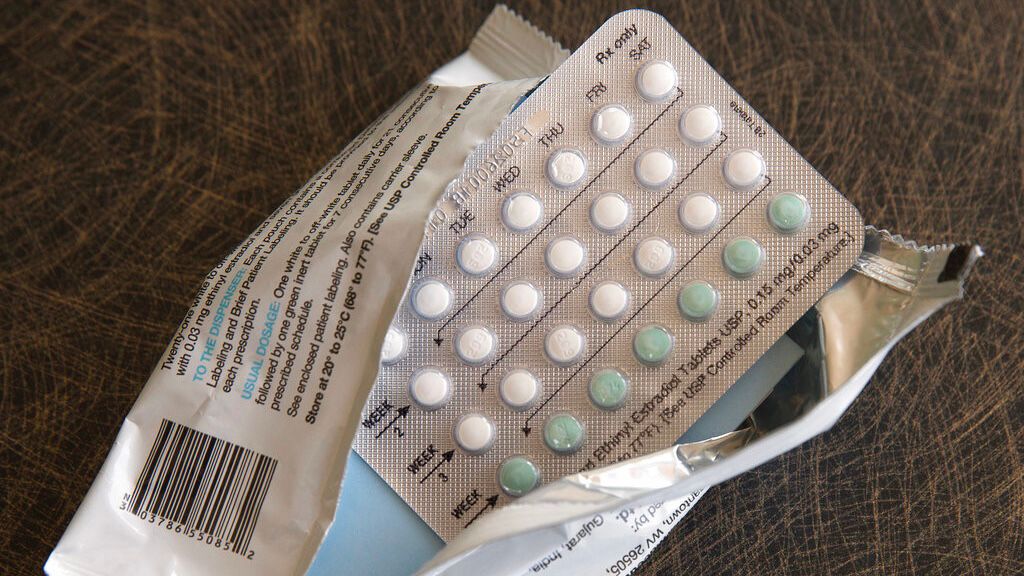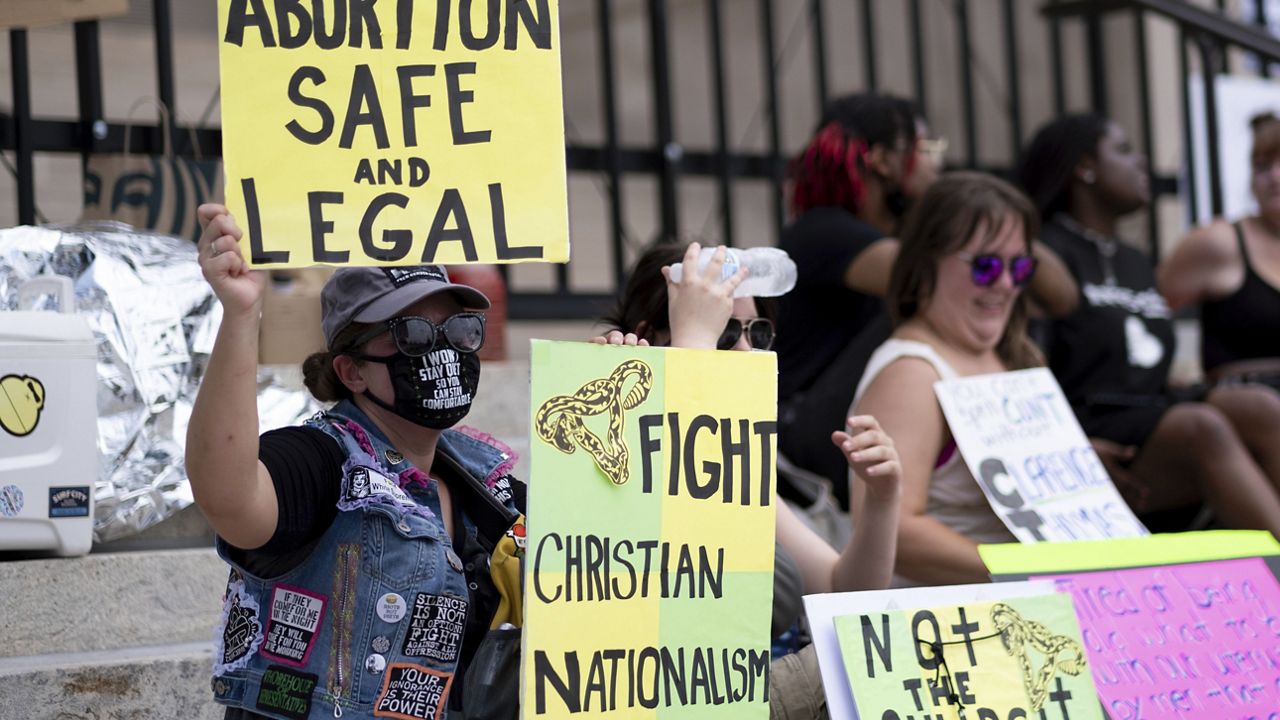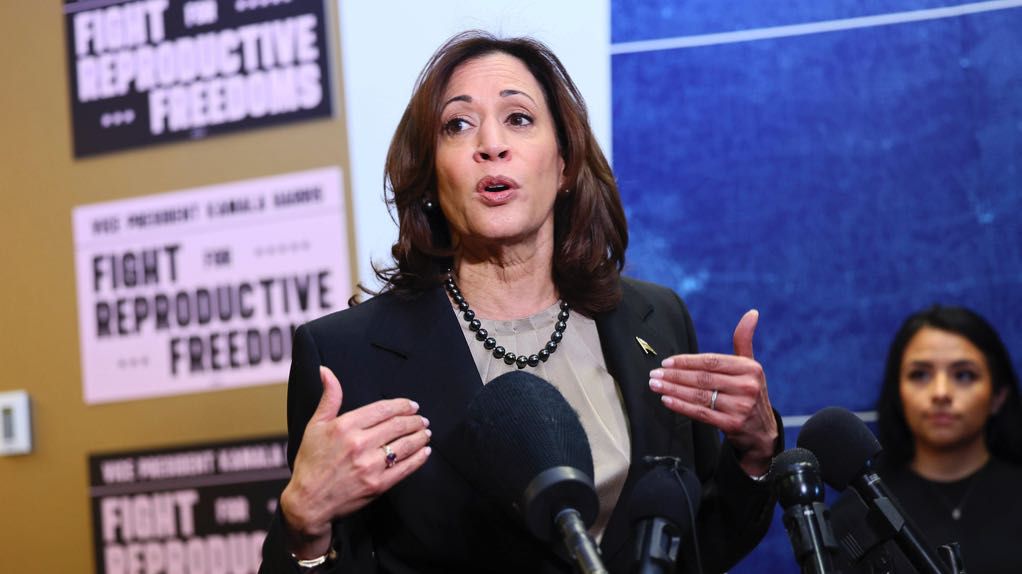The Supreme Court on Thursday temporarily allowed abortions to be performed in Idaho in cases of medical emergencies despite the state's strict ban on the procedure.
The decision a major win for the Biden administration and reproductive rights advocates, albeit a temporary one.
The decision comes one day after the ruling was briefly posted on the court's website and taken down. The premature release of the document hearkened back to the release of a draft of the Dobbs v. Jackson Women's Health Organization decision — which overturned Roe v. Wade, the landmark decision that guaranteed the constitutional right to an abortion — a month before the high court officially handed down the ruling.
The case involved a federal law known as Emergency Medical Treatment and Active Labor Act (EMTALA), which requires that all Medicare-participating hospitals provide emergency services regardless of ability to pay, and an Idaho abortion restriction which says that performing the procedure is a felony punishable by up to five years in prison, outside of very narrow exceptions.
Doctors in Idaho said that the law wasn't clear on when they could provide abortions in emergencies, forcing them to airlift pregnant women to other states for emergency care on several occasions since the high court had allowed the ban to go into effect in January.
The Biden administration sued Idaho over its abortion ban two years ago, saying that hospitals must provide emergency abortions if a patient's health is at risk, even in non-life-threatening instances.
The 6-3 ruling, which is similar to the opinion posted on Wednesday, is unlikely to be the last word on the matter. The justices determined that the case was improvidently granted — meaning that the high court decided it should not have taken the case — and reinstated a lower court ruling that paused the ban and allowed emergency abortions to be performed.
While the order was unsigned, several justices penned opinions accompanying it, including Justice Ketanji Brown Jackson, who wrote that the ruling "is not a victory for pregnant patients in Idaho. It is delay."
"While this Court dawdles and the country waits, pregnant people experiencing emergency medical conditions remain in a precarious position, as their doctors are kept in the dark about what the law requires," Jackson, who was appointed to the high court by President Joe Biden, wrote. "This Court had a chance to bring clarity and certainty to this tragic situation, and we have squandered it. And for as long as we refuse to declare what the law requires, pregnant patients in Idaho, Texas, and elsewhere will be paying the price."
"Because we owe them—and the Nation—an answer to the straightforward pre-emption question presented in these cases, I respectfully dissent," she added.
While Democrats and abortion rights advocates cheered the ruling, they echoed Jackson's comments.
"No woman should be denied care, made to wait until she’s near death, or forced to flee her home state just to receive the health care she needs," President Biden said in a statement. "This should never happen in America. Yet, this is exactly what is happening in states across the country since the Supreme Court overturned Roe v. Wade."
Referencing Dr. Kylie Cooper, an Idaho physician who cared for women with high-risk pregnancies and left the state after it enacted its abortion ban, Biden said her story "is the reality for doctors and the women they care for since Roe v. Wade was overturned."
"Make no mistake: this is all part of Republican elected officials’ extreme and dangerous agenda to ban abortion nationwide, and put women’s health and lives at risk," he added. "The stakes could not be higher and the contrast could not be clearer."
"This ruling does not change the fact that women across the country are being turned away from emergency rooms and denied needed reproductive care because of Donald Trump’s abortion bans," Vice President Kamala Harris said in a statement released by Biden's reelection campaign, referencing Trump's appointment of three justices who overturned Roe.
“A second Trump term would make matters even worse," Harris continued. "Trump’s team is planning to ban abortion nationwide through executive action, which would impact women in all 50 states. “President Biden and I fundamentally believe that every American has the right to make decisions about their own reproductive health care and not have the government tell them what to do. Ultimately, one thing is certain: The only way to stop Trump’s relentless attacks on Americans’ fundamental freedoms is at the ballot box this November."
Thursday's decision second major ruling on abortion since the Supreme Court overturned Roe. Earlier this month, the high court unanimously rejected a challenge to widely used abortion medication mifepristone, saying the plaintiffs lacked standing to challenge the U.S. Food and Drug Administration's approval of the drug.
The opinion means the Idaho case will continue to play out in lower courts, and could end up before the Supreme Court again. It doesn't answer key questions about whether doctors can provide emergency abortions elsewhere, a pressing issue as most Republican-controlled states have moved to restrict the procedure in the two years since the high court overturned Roe v. Wade.
In a similar case, the state of Texas also argued that federal health care law does not trump a state ban on abortion and the New Orleans-based 5th U.S. Circuit Court of Appeals sided with the state.
The Idaho ruling doesn't appear to affect that finding. The Biden administration has appealed the case in Texas, leaving another avenue for the issue to appear before the high court. The justices are unlikely to even consider whether to take up the Texas case before the fall.
The Assocaited Press contributed to this report.









